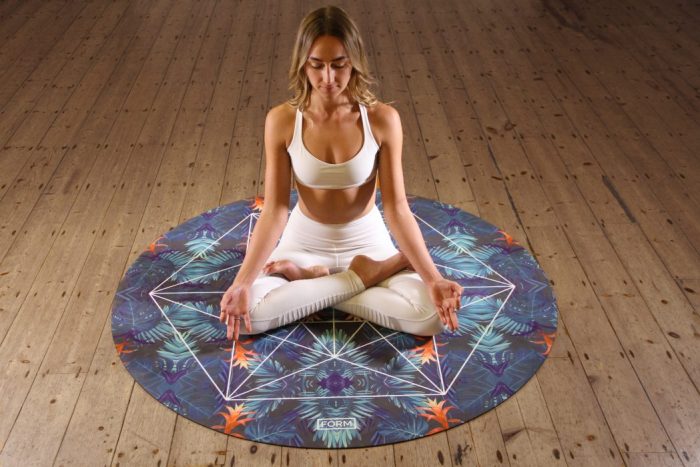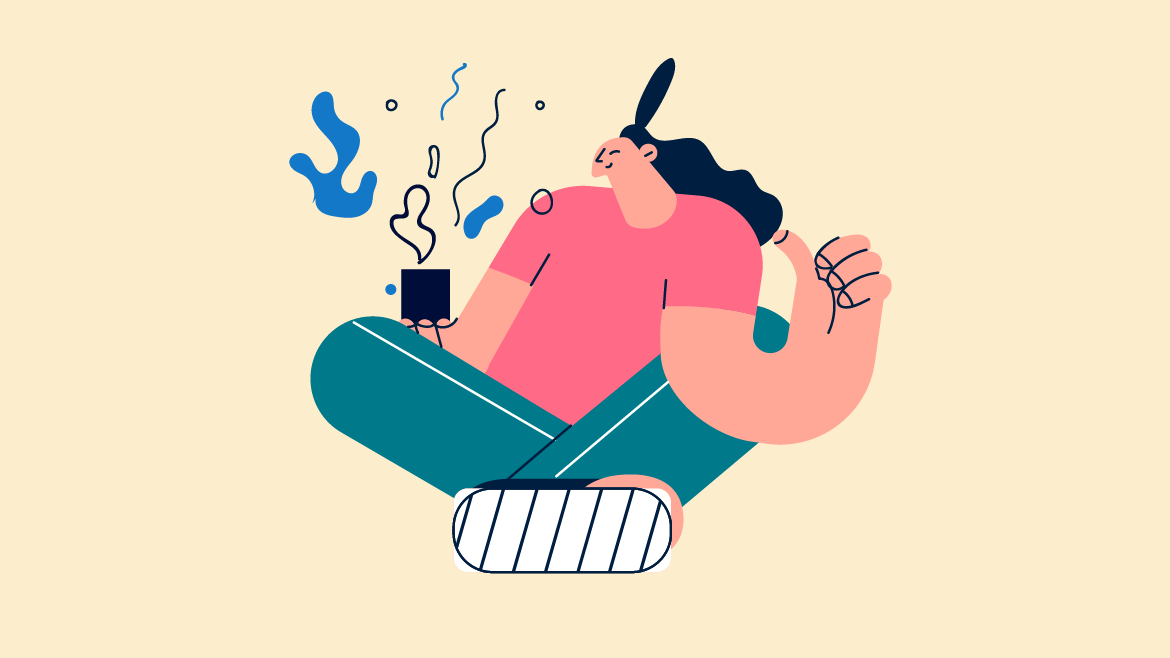To leave the hamster wheel when all these tasks are due is not easy, but necessary. Permanent effort can lead to overload and exhaustion. These, severely limit performance and have a negative effect on one’s own health.
Therefore, press the “pause button” in between and be aware of the following: a balance between phases of tension and phases of relaxation is important! Only then physical and mental regeneration is possible.
But how can we actually consciously relax?
There are many techniques and possibilities to give body and mind peace and relaxation, it is crucial to find the right one for yourself. Therefore, try out which method best suits your own needs and how this can be best incorporated into your everyday study routine.

The instant tip for reducing stress: Take a deep breath!
Under stress, our breathing becomes flatter and faster. This leads to increased tension. The simplest antidote is to breathe in deeply through the nose into the stomach and exhale again through the mouth. Already after a few breaths, the body starts to relax again. Try it out right away!
Physical activity and nature for stress management
Every kind of movement has positive effects on the body. Exercise is particularly important during stressful phases. This is because, under stress, the hormone cortisol is released. However, too much cortisol has a negative effect on the body. What helps is physical activity, through which cortisol is broken down. If the movement is exercised in the nature, this effect is twice as good. Studies have shown that workout lowers blood pressure, strengthens the immune system and reduces the amount of stress hormones in the body. So, put on your sport’s shoes and go out playing volleyball, football or simply go jogging!
Study groups motivate and reduce stress at university
If self-doubt is the trigger of stress during studies, then learning groups can be a helpful support. Together you can better deal with problems and learning contents. In addition, this setting shows that other fellow students also have difficulties with one or the other topic. Therefore, the feeling of “not being alone” strengthens one’s own self-esteem.
Take short relaxation breaks to reduce stress
The learning pressure is particularly high during the exam period at the end of the semester. During this time, students spend hours at their desks. However, as always, quantity is not the same as quality. So, take a short break after every hour of study. Stand up, move, get some fresh air and do not forget to drink. The brain does not only need liquid and oxygen but also breaks in order to process what it has learned.

Yoga, Pilates, Tai Chi & Co.
They all belong to the Asian relaxation methods. They deal with certain movement sequences, which combine breathing and energy exercises. As a rule, the exercises are performed lying, sitting or standing. The breath alternates between tension and relaxation phases. Blockades and tensions are released. The body becomes more flexible and by concentrating on the breath, the “Monkey Mind” comes to rest. Practiced once or twice a week, they lead to more relaxation in everyday life.
Sleep
The body recovers best during sleep. Therefore, is good and above all sufficient sleep necessary to reduce stress and to relax. For a healthy sleep, a regular sleep rhythm and the deep sleep phases are very important. These usually start 30 to 60 minutes after falling asleep. They alternate with the active dream phases and are the most relaxing for the body. Why? Because during this phases, the cells regenerate and the immune system is strengthened.
Social media and social life
The smartphone is a time wasting instrument. Just a quick Instagram check ends up in half an hour of internet surfing. This, several times a day. According to a 2016 study, we waste more than two hours a day on social media.
Precious time that we could use for learning or for relaxing. Because the supposed “relaxing” on the mobile phone can also be quite stressful. It has been proven that the many happy and healthy world pictures can also put your own “social media self” under a lot of pressure. So make better use of this time and go to the cinema with real friends. Go to a concert. Go and play volleyball with someone or lie at the lake. So, mobile phone away and out into life. This relaxes and puts you in a good mood.
The author
Stephanie Poggemöller is business graduate, Coach and founder of Work & Family (workandfamily.de). She advises and supports families and students in order to find a balance among work, study, leisure and family in the everyday life. The most important parts of her work are time- and self-management, compatibility, self-care and relaxation.



